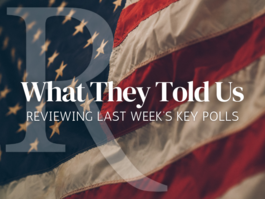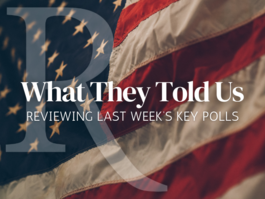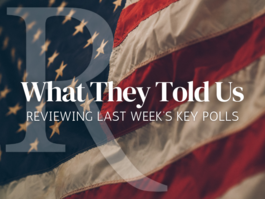Just 6% Think Most Politicians Keep Their Campaign Promises
Voters remain overwhelmingly convinced that most politicians won’t keep their campaign promises, but they’re a little less convinced that their elected officials deliberately lie.
A new Rasmussen Reports national telephone survey finds that only six percent (6%) of Likely U.S. Voters think most politicians keep the promises they make on the campaign trail. Eighty-four percent (84%) say most politicians don’t keep their campaign promises. Eleven percent (11%) are not sure. (To see survey question wording, click here.)
In November 2009, 76% said most politicians don’t keep their campaign promises, a finding that crept up to 81% in October of last year.
Among those who always vote Democratic, 20% believe most politicians keep their promises. Just one percent (1%) of those who always vote Republican agree.
However, voters overall are a little less cynical about why campaign promises are broken. Forty percent (40%) say it’s usually because the politicians deliberately make false promises, but a plurality (47%) now believes the promises are broken largely due to unforeseen events. Twelve percent (12%) are undecided.
Two years ago, voters were almost evenly divided on this question. But last year just before the election that upended Democratic control of the House and added Republicans to the Senate and many statehouses, voters believed by a 50% to 39% margin that campaign promises are usually broken because politicians make deliberately false promises to begin with.
Democratic voters are much more charitable than Republicans on this question. While 69% of those who always vote for a Democrat think campaign promises are usually broken due to unforeseen circumstances, 50% of those who always vote Republican disagree and think it’s because politicians make false promises on the campaign trail. Forty-five percent (45%) of those who vote for equal numbers of Republicans and Democrats share the latter view.
(Want a free daily e-mail update? If it's in the news, it's in our polls). Rasmussen Reports updates are also available on Twitter or Facebook.
The survey of 1,000 Likely Voters was conducted on October 4-5, 2011 by Rasmussen Reports. The margin of sampling error is +/- 3 percentage points with a 95% level of confidence. Field work for all Rasmussen Reports surveys is conducted by Pulse Opinion Research, LLC. See methodology.
Rasmussen Reports is a media company specializing in the collection, publication and distribution of public opinion information.
We conduct public opinion polls on a variety of topics to inform our audience on events in the news and other topics of interest. To ensure editorial control and independence, we pay for the polls ourselves and generate revenue through the sale of subscriptions, sponsorships, and advertising. Nightly polling on politics, business and lifestyle topics provides the content to update the Rasmussen Reports web site many times each day. If it's in the news, it's in our polls. Additionally, the data drives a daily update newsletter and various media outlets across the country.
Some information, including the Rasmussen Reports daily Presidential Tracking Poll and commentaries are available for free to the general public. Subscriptions are available for $4.95 a month or 34.95 a year that provide subscribers with exclusive access to more than 20 stories per week on upcoming elections, consumer confidence, and issues that affect us all. For those who are really into the numbers, Platinum Members can review demographic crosstabs and a full history of our data.
To learn more about our methodology, click here.



